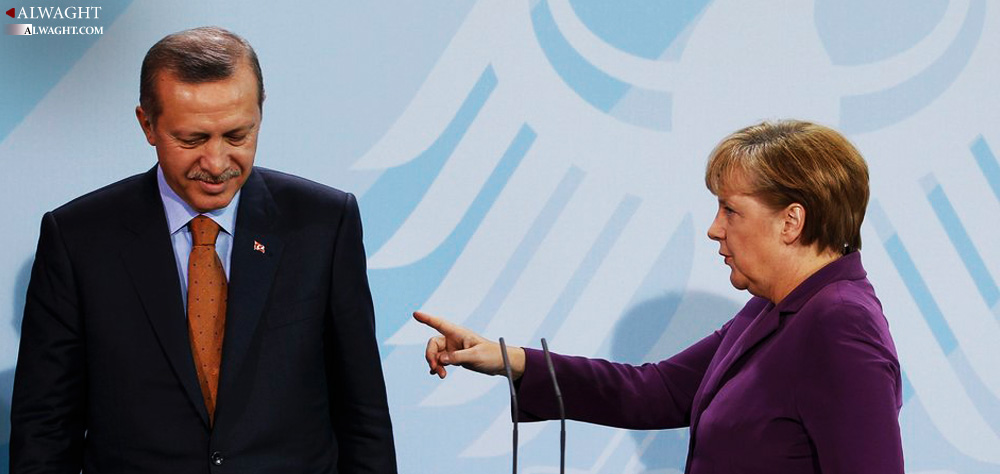Alwaght- Following victory in the Turkey's 2015 parliamentary election, the ruling Justice and Development Party (AKP), led by President Recep Tayyip Erdogan, was able to tighten its grip on the power that started in 2002. At the heels of the June 2016 military coup bid, Erdogan, who became president of Turkey in 2014, expressed the firm government determination to amend the nation’s constitution, a measure that aimed at transforming the country’s political system from parliamentary to presidential.
To justify his political transformation efforts, the Turkish leader said he was doing so to reinforce the country’s political structure, and to enable Turkey to both counter the terrorism and improve its economic strength. To this end, the Turkish lawmakers examined the constitutional reforms draft proposed by the government, and finally approved it with 330 votes. They, then, sent the bill to the government to put it to referendum, the date of which was chosen April 16.
If the people vote in favor of the constitutional amendment, the country’s political system will undergo fundamental changes. The major overhaul will lead to abolishment of the current “two-headed”– a joint rule of the president and the prime minister– parliamentary system, establishing a presidential system in which there will be no prime minister post. At the same time, the parliament agreed a bill of constitutional modification that will expand president Erdogan’s powers.
However, a majority of the opposition parties and movements in the country have raised strong objection to the constitution overhaul efforts that followed the last June's power grab attempt. According to Turkish opposition, the move indicates that government is getting off the track towards "dictatorship.”
In addition to domestic outcries over Erdogan and his party’s plans, the Turkish president’s reformist struggles have faced the European Union's protest, particularly its leading member Germany. The fact about the EU opposition to this constitutional amendment is that it makes no difference for the European bloc to see a democratic Turkey under a presidential or a parliamentary political system. What it does not want to see and shows sensitivity to is the long stay of Erdogan in the power. For EU, any increased power of Erdogan will mean that Europe in its eastern borders has to bear existence of a leader in the neighboring Turkey who is not capped by smallest legal limits in decision making, and who lacks behavioral stability and logic for advice, and most importantly is intolerant of criticism. All these characteristics together in the Turkish president, the European leaders think, can impact EU's interests in the long run.
In fact, Europe’s neighboring of a nation with authoritarian rule can push the two sides to a series of challenges as certainly cultural and political interactions between them are unavoidable. The Europeans argue that adopting a presidential regime in Turkey will undermine the nation’s rule of law. They give as example the past few years' performance of Erdogan who justified use of any tool to obtain his goals. He, for example, transformed the Kurdish regions of the country to battlefields, reportedly displacing over 5,000 Kurds, in bid to persuade the Turkish people into supporting his ruling party AKP.
A mix of propaganda and incidents, like the overstated risk of PKK activities in the country and its potential terror attacks, ISIS infiltration to Turkey, and the failed military coup, provided the Turkish president with the pretext needed to remove his opponents at the parliament and so pave the way for approval of political change law.
The power struggle even affected the president’s friends as Erdogan forced out of post the former PM Ahmet Davutoglu after he criticized and even opposed the leader, though the pro-AKP media described it as a willful resignation. Either way, this incident made it crystal clear that even Erdogan’s friends have to be accordant, or they must be deleted from the president’s circle of power.
That is why the Europeans see the Turkish shift from parliamentary to presidential political system as ushering in a period of strains on the parties and religious and ethnic minorities in the country, especially that Erdogan still nationalistically accentuates the Turkish identity, an approach that once again isolated the Kurds from the country’s sociopolitical scene.
Last week, the Turkish justice minister’s speech for the pro-Ankara rally in Germany was cancelled. Netherlands government also opposed the same gatherings planned for March 11 in Rotterdam with presence of the Turkish Foreign Minister Mevlut Cavusoglu, as its PM Mark Rutte posted on Facebook that “we find this unacceptable, the public sphere of the Netherlands is not the political campaign area of other countries.”
A number of European leaders reacted to the Turkish government’s rallies abroad, saying that they are held to promote for the upcoming constitutional referendum among the Turkish citizens in the EU. In the eyes of the EU leaders, showing green light to the rallies will mean a green light to Erdogan’s unilateral policies.
So the EU opposition is triggered by the Turkish president’s political approach and not by the bid for political system changes. They argue that Erdogan’s authoritarian performance in the past well confirms their worries, and political changes even deteriorate this trend. The president’s conclusion of efforts will influence Turkey at home and then rise to strain Ankara’s foreign policy and ties with its neighbors, including those in Europe.



























